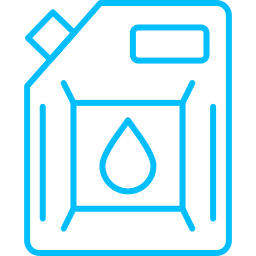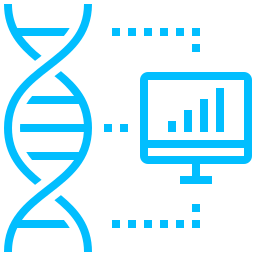Biotechnology Industry
Nestack Technologies covers the full biotech software industry, from digital health to tech platforms, applying Machine Learning to enhance biotechnology.

Machine Learning in Biotechnology
Machine Learning revolutionizes biotechnology, accelerating discoveries, enhancing diagnostics and delivering personalized medicine for improved healthcare outcomes worldwide.
Drug Discovery and Development
ML algorithms play a crucial role in accelerating the drug discovery process. By analyzing molecular structures, genomic data and clinical outcomes, ML models can predict drug-target interactions, identify potential drug candidates and optimize drug design. This expedites the development of novel therapeutics and enhances precision medicine approaches.
Genomic Analysis and Precision Medicine
Machine Learning enables the analysis of vast genomic data sets to unravel insights into disease mechanisms and facilitate personalized medicine. ML algorithms can identify genetic variants, predict disease risks and guide treatment decisions based on an individual's genetic profile. This enhances diagnosis, prognosis and targeted therapies.
Image Analysis and Medical Diagnostics
ML algorithms have revolutionized medical diagnostics by analyzing medical images such as X-rays, MRIs and histopathological slides. ML models can detect abnormalities, classify diseases and assist radiologists in interpreting complex images, leading to more accurate diagnoses and timely interventions.
Disease Surveillance and Epidemiology
Machine Learning has the potential to transform disease surveillance and epidemiological studies. ML algorithms can analyze diverse data sources, including social media, sensor data and electronic health records, to identify disease outbreaks, predict the spread of infections and support public health interventions.
Tech and tools we use to build Biotech Software
We use top tools, the latest technologies and modern methods to help grow your business.
Modern Technologies
Artificial Intelligence
Machine Learning
Augmented Reality
Computer Vision
Internet of Things
Virtual Reality
Front-End Technologies
ReactJS
AngularJS
Vue.js
Next.js
CSS
HTML
JavaScript
Back-end Technologies
Node.js
Python
Java
Microsoft .NET
PHP
ROR
Golang
DevOps
Docker
Kubernetes
MESOS
OPENSHIFT
AWS Developer Tools
Azure DevOps
Google Developer Tools
Many More..
Databases
SQLServer
MySQL
ORACLE
PostgreSQL
Cassandra
MongoDB
Mobile Application Development
Flutter
Cordova
Swift
Xamarin
IONIC
React Native
Desktop Technologies
C++
Microsoft WPF
Python
C#
QT
OBJ-C
Cloud
AWS
Azure
Google Cloud
Why You Should Hire From Nestack
We serve the entire biotechnology software industry, from digital health to medical devices and technology platforms.
Quick hiring
Focus on your core business activities while we handle the complexities of application development. Our quick and straightforward hiring process ensures you receive the right developers tailored to your project's requirements.
Scalable Teams
Build your next application with our dynamic team, capable of scaling up to maintain exceptional quality. We are committed to delivering high-performance applications that meet your needs.
Robust Coding Practices
Our developers craft robust code designed to manage unexpected challenges and errors effectively. We ensure your application remains stable, reliable and adaptable to evolving business requirements.
Cost-Effective Solutions
Receive superior quality applications at competitive prices. We are dedicated to delivering your projects on time and within budget, ensuring optimal financial efficiency.
How We Build Biotech Software
We continuously refine our software development life cycle to establish more efficient workflows, enabling us to deliver superior software more rapidly for the Biotech industry.
Get Your Artificial Intelligence Consultation
Don’t delay! Gain a competitive edge with our expert artificial intelligence consulting services.
20-Hour AI Consultation
- AI consultancy by our AI experts.
- Start exploring AI opportunities in the Biotech Industry.
- Get expert guidance for ongoing or upcoming AI projects.
1-Day AI Training & Workshop
- A 4-hour interactive workshop led by one of our AI experts.
- Interactive workshop accommodating up to 10 attendees.
- Learn about AI and work together to see how it can help your organization.
Develop AI Applications
- Developing a PoC or MVP.
- Creating specialized DL solutions, ML applications and NLP applications for Biotech Industry.
- Building custom Computer Vision applications, ChatGPT/LLM solutions and Generative AI applications.
Who Can Hire Biotechnology Software Developers from Nestack?
Here's how Nestack Technologies has contributed to advancements across various sectors in the biotechnology industry.
Biofertilizers Sector
Developed mobile app for farmers to monitor and manage the application of biofertilizers.
Biofuel Sector
Utilized ML algorithms to enhance biofuel yield and quality by analyzing feedstock characteristics and production parameters.
Aquaculture
Designed software solutions for monitoring water quality and fish health, integrating with IoT devices for real-time data gathering.
Bioinformatics
Create AR applications that visualize complex genetic data and molecular structures in 3D.
Nanobiotechnology
Developed app for monitoring and managing nanobiotechnology processes in research and industrial settings.
Gerontechnology
Developed platforms to monitor elderly health and wellbeing, integrating sensor data with health records.

Biofertilizers Sector
Developed mobile app for farmers to monitor and manage the application of biofertilizers.

Biofuel Sector
Utilized ML algorithms to enhance biofuel yield and quality by analyzing feedstock characteristics and production parameters.

Aquaculture
Designed software solutions for monitoring water quality and fish health, integrating with IoT devices for real-time data gathering.

Bioinformatics
Create AR applications that visualize complex genetic data and molecular structures in 3D.

Nanobiotechnology
Developed app for monitoring and managing nanobiotechnology processes in research and industrial settings.

Gerontechnology
Developed platforms to monitor elderly health and wellbeing, integrating sensor data with health records.
Hire Software Developer
Get expert developers and best practices for every stage of biotechnology software development.
- 8 hours a day
- 5 days a week
- Dedicated resource
- 4 hours a day
- 2 hours a day
- 5 days a week
- Budget-friendly
- 80 hr commitment
- One-time tasks

Dive Into Our Services
Explore our diverse range of services designed to cater to your unique needs.
Find Top IT Talent for Biotechnology
Access top-notch IT professionals at Nestack Technologies, committed to achieving outstanding outcomes and boosting your Biotechnology business growth.
FAQ's
Why is AI consulting important?
AI consulting services are vital for identifying and implementing tailored AI solutions. Nestack AI consultants offer expertise in selecting technologies, developing integration strategies and aligning AI initiatives with business goals.
How many Biotech software developers can we hire
Whether you’re looking to bring on board just one developer, a small group or even an entire dedicated team, Nestack has you covered. Additionally, if you already have a team and just need to fill in some gaps with specific expertise, we’re here to assist you with that as well.
Can I visit your ODC in India?
Of course, you’re always welcome to visit Nestack at our Hyderabad, India, office at your convenience.
Do your dedicated programmer sign a non-disclosure agreement?
Yes, the security requirements of clients are the top priority at Nestack. Upon selection by the client, all professionals are contractually bound to protect customer confidentiality.
Can i Interview Biotech software developers before making a hiring decision?
Yes, absolutely!
How do I communicate with my dedicated Programmer ?
Although teams may be geographically distributed, daily stand-up meetings in the Agile methodology help to achieve better performance. The preferred methods of communication are telephone, email, and Slack, MSN or Skype chat.
Are the programmers from Nestack available to work in my time zone?
Our standard working hours are from 10 AM to 7 PM IST (Monday to Friday). However, our hired developers can accommodate scheduling adjustments of approximately +/- 3 hours from regular office hours for calls or meetings.
Does Nestack ensure the confidentiality of a client's intellectual property?
Nestack is committed to protecting the confidentiality of our clients’ intellectual property at all times. This includes signing a non-disclosure agreement (NDA) at the outset of the project, securely storing code in private Git repositories, and ensuring all formalities related to code ownership and copyrights are properly handled upon project delivery.
How secure are my source code and commercials?
Nestack provide developers with a secure development environment with firewall, password, and encryption protection. It is virtually impossible to gain unauthorized access to any sensitive data or commercial secrets.
Which mode of payment is preferred?
Payments are generally made through bank wire transfers.
Looking for flexible hiring options with Nestack?
With Nestack, scale your business wisely by hiring proficient developers on a part-time or full-time basis, managing your burn rate efficiently while accelerating growth. Monthly service level support includes 8 hours/day for Full Time, 4 hours/day for Part Time, 2 hours/day for Part Time, and 5 hours/week for Part Time (on demand).
























